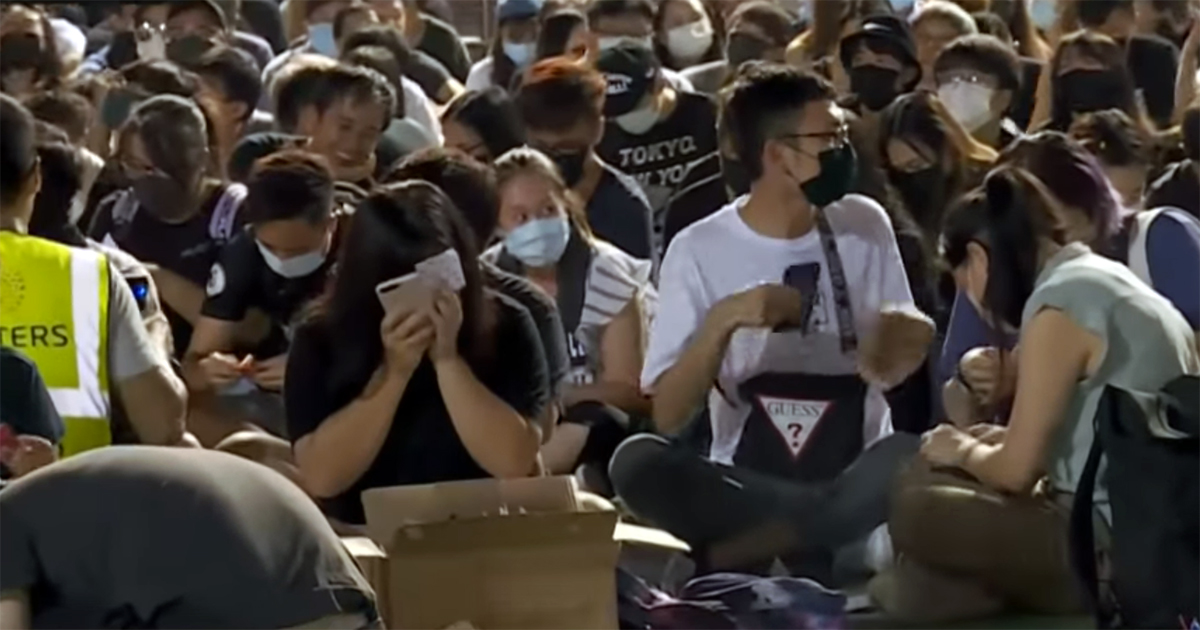Hong Kong chief executive Carrie Lam on Friday, Oct. 4 banned face masks in the city to end protests, invoking colonial-era emergency powers for the first time in more than 50 years.
Lam said at a news conference that a ban on face masks would take effect on Saturday, Oct. 5 at midnight.
What it means
Emergency laws allow authorities to “make any regulations whatsoever” in the public interest.
Lam said the prohibition on face masks will have a “deterrent effect” to stop violence at protests, citing a rise in violence by protesters in recent weeks.
The ban will also help police enforce the law, but this measure didn’t mean Hong Kong was under a state of emergency, she said.
"The violence is destroying Hong Kong,” Lam said.
“We must save the present Hong Kong and the future Hong Kong.”
What are the penalties
Those who violate the ban could get a jail term of up to one year, or a fine of HK$25,000 (S$4,400).
Hong Kong might next extend the detention period of suspects beyond 48 hours, as more manpower is needed to handle the large volume of protest arrests.
Backlash expected
The prospects of this new ban has already caused protesters to call for mass demonstrations to oppose the law.
“This is like opening a Pandora’s box -- who knows what will come next after this ban?” said one man protesting in central Hong Kong on Friday afternoon.
Face mask a symbol
The face mask has become a symbol of resistance among protesters.
They wear it to mask their identity as they fear retribution if they are identified.
Supporter of ban
Hu Xijin, editor-in-chief of China's state-backed tabloid newspaper Global Times supported the ban.
"There's strong demand in Hong Kong calling for anti-mask law," Hu said.
"Most of the violent activities in Hong Kong were committed by masked rioters."
What critics are saying
Critics have countered that bypassing the legislature and giving Lam the power to make any law would be a slippery slope for an international finance hub that owes its economic success to its reputation for rule of law and judicial independence.
The law would also be difficult to enforce, and could spur court challenges as a rights violation.
The move is expected to cause more controversy and unrest.
Police will be hard-pressed to determine if a person wearing a mask has a genuine need to do so, such as having a pre-existing medical condition that calls for it.
Background of emergency law
First passed by the British government in 1922 to quell a seamen's strike in Hong Kong's harbour, the emergency law was last used by the colonial administration to help put down riots that rocked the trading hub in 1967.
Denounced by protest leaders as a form of martial law, it could give the government greater leeway to arrest citizens, censor publications, shut off communications networks and search premises without warrants, among other measures.
If you like what you read, follow us on Facebook, Instagram, Twitter and Telegram to get the latest updates.
